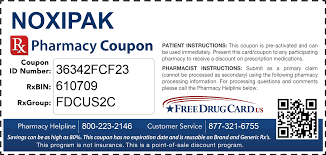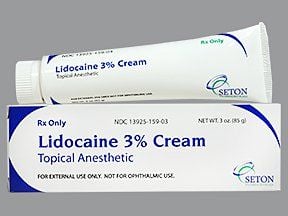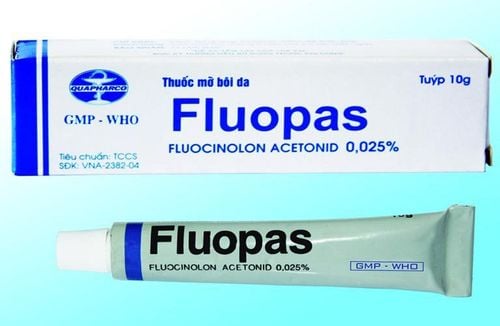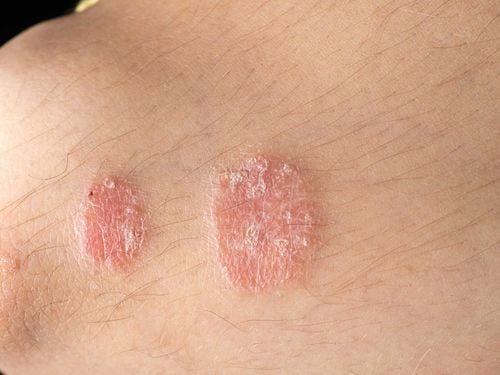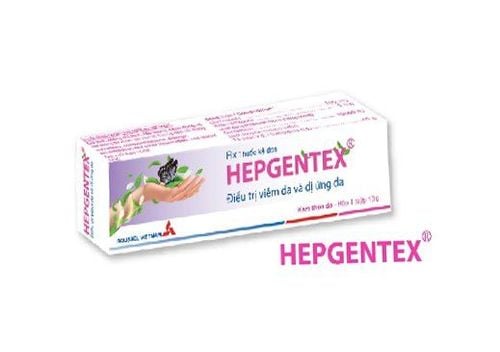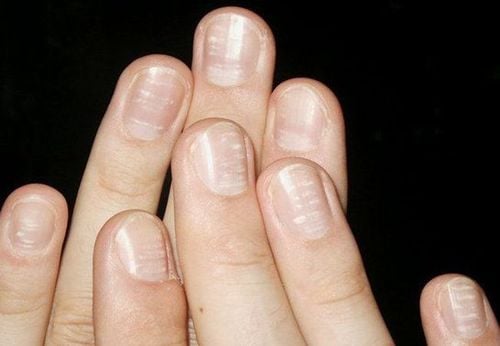This is an automatically translated article.
The article was consulted with Master, Doctor Nguyen Thi An - Pediatrician - Neonatologist - Department of Pediatrics - Neonatology - Vinmec Ha Long International General Hospital.Congenital psoriasis, if not detected and treated in time, the baby will feel very uncomfortable as well as painful. Parents often confuse infant psoriasis with other forms of disease such as eczema and heat rash.
1. What is infant psoriasis?
Psoriasis is a chronic inflammatory condition of the skin that accelerates the production of new skin cells causing skin cells to accumulate at an abnormal rate. These patches of dead skin form red, scaly patches of white or silver, with sharp and gray edges. It also causes mild to very itchy sensations.Psoriasis affects all ages and most commonly develops between the ages of 15 and 30. Although rare, psoriasis can occur in infants. Psoriasis is not contagious by contact, so parents should not assume that their child has contracted it from other babies or adults.
2. Causes of psoriasis in babies
Normally, old, old skin cells die, slough off and new skin cells are formed to take their place. In patients with psoriasis, this skin shedding process takes place 10 times faster (skin cell proliferation), causing old and new cells not to replace each other, piling up to form a thick, red, patchy patch. white or silver scales. The disease can last a lifetime or only have isolated episodes.The true cause of psoriasis is still unknown. Psoriasis is thought to be a combination of genetics, susceptibility to autoimmune diseases, and environmental or infectious agents. Family history is also an important factor in the development of psoriasis in infants. About 10% of children get the disease if one of their parents is sick, and 40% of children get it if both parents are sick. In addition, having a family history of autoimmune disorders such as thyroid disease, multiple sclerosis or Crohn's disease also increases the risk of developing congenital psoriasis in the baby. runs in families, as psoriasis is also an autoimmune disorder. For older babies and adults, obesity is also a risk factor for psoriasis. In addition, the use of drugs, cold weather, skin damage can also become the cause of the disease appearing in babies. For infants and young children, the onset of psoriasis often begins with an infection, following a cold.
3. Types of psoriasis in babies
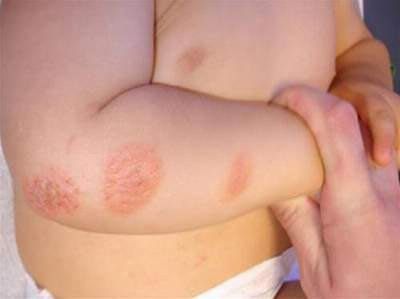
Có nhiều dạng vảy nến ở trẻ em
Plaque psoriasis This psoriasis is most common in all ages, psoriasis looks like plaques, has red white or silver scales, appears on the lower back, scalp, elbows and knees . In children, plaque psoriasis tends to be smaller in size and softer.
Droplet psoriasis Globular psoriasis is more common in infants and children than in adults. In addition, it ranks 2nd among the most common forms of psoriasis. Usually triggered by strep throat or after a cold, it appears as small, dot-like patches (rather than large patches) all over the body.
Pustular Psoriasis Psoriasis as a red patch, with a pus-filled nucleus in the middle, appearing a lot on the hands and feet, not common in infants.
Scalp Psoriasis A special plaque that appears on the scalp, causing red areas and flakes of white flakes on top.
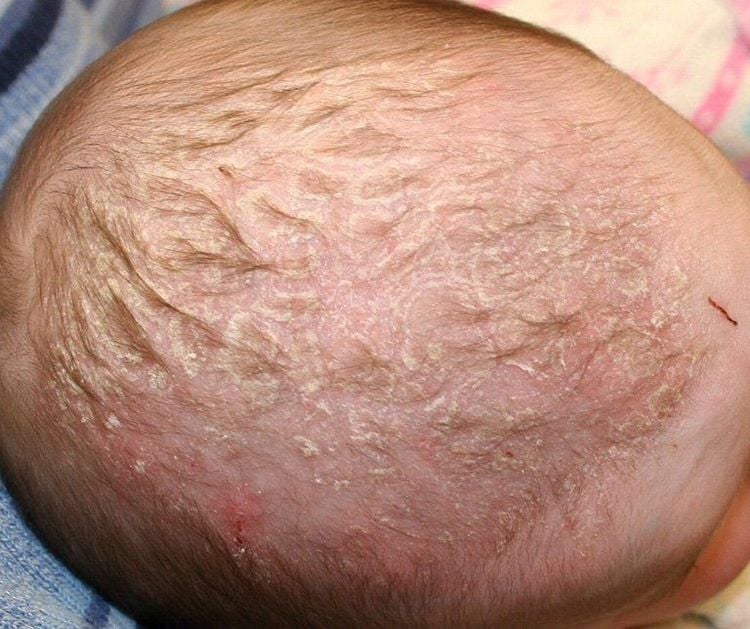
Vảy nến da đầu
Generalized Psoriasis Systemic psoriasis is rare but potentially life-threatening if not treated properly and promptly, the child will feel very itchy and painful with peeling patches of skin.
Nail psoriasis This infant scaly disease is uncommon, causes pitting and stretch marks on fingers and toenails and may discolor or fall off, with or without lesions. on the skin.
4. Diagnosing infant psoriasis
Infantile psoriasis is a rare dermatological condition, so it is difficult to diagnose because it can present similarly to other common skin conditions. Therefore, parents need to take a family history and observe carefully so that they can assist the doctor in the diagnosis process. If your baby has a rash that doesn't get better despite using topical creams and home remedies, parents should take their child to see a doctor to determine the exact cause of the rash. In addition, to diagnose psoriasis in a newborn baby needs to be observed for a rather long time.Most types of psoriasis present red, scaly white patches of skin on different parts of the body, which can cause itching and pain or even bleeding, cracking, the most common location when Psoriasis is the face, neck, elbows, knees, diaper area, and scalp. The doctor will use the appearance of the skin lesions and the family history to diagnose psoriasis in babies. Psoriasis in infants can be cured and not recurred, in contrast to psoriasis that occurs in adults.
5. Distinguishing infant psoriasis and eczema
Eczema is very common in infants and is characterized by patches of dry and red skin, often occurring on the backs of the knees, arms and on the face... the areas of the rash will feel itchy, which may be possible. cracked or bleeding.Eczema does not have the accumulation of white scales on red patches of skin like psoriasis often has. Eczema is more likely to respond better to over-the-counter creams and moisturizers than psoriasis. Eczema rarely affects a baby's diaper area.
In addition, children are still likely to have eczema and psoriasis at the same time. If your baby has a rash for no apparent reason, it's best to take your child to see a doctor to determine the reason and create a treatment plan to help return your baby's skin to normal.
6. Methods to treat psoriasis in babies
Moisturizing creams and emollients will help keep the baby's skin soft, smooth and dry, thereby keeping the skin in good condition and effectively supporting the treatment with ointments.There are many types of moisturizers such as bath oils, creams, solutions and ointments (coal tar, vitamin D, topical steroids and dithranol) that are applied directly to the skin. For some children, moisturizers and emollients are enough to control psoriasis.
Avoid exposing children to extreme heat or cold, and avoid direct sunlight. Keep scaly affected areas clean and dry. Oral medications are generally not recommended by doctors.
Please dial HOTLINE for more information or register for an appointment HERE. Download MyVinmec app to make appointments faster and to manage your bookings easily.




